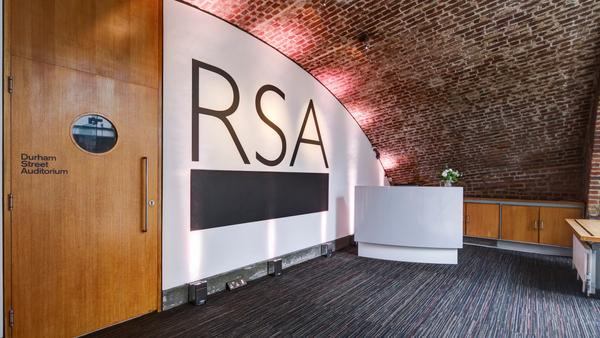The RSA (Royal Society for Arts, Manufactures and Commerce) today announce a partnership to bring adult learners to the heart of the skills debate with Ufi.
The UK skills crisis is costing organisations £6.3 billion, and 91% of companies have struggled to find workers with the right skills over the past 12 months. However, evidence and insight developed by the RSA and Ufi, shows that the skills debate is focusing too heavily on the needs of employers alone, and this may hurt employers further if the integral needs of adult learners and their social contexts are not addressed.
Together, the RSA and Ufi argue, that the Skills and Post-16 Education Bill, which aims to implement policies set out in the Government's 'Skills for Jobs' white paper, does not do enough to tackle the needs of learners, and particularly those poorly served by traditional education.
Research undertaken by Ufi in 2021, in the VocTech Challenge white paper, identified that social and practical support alongside building learner confidence is essential to accessing skills development opportunities. Whilst popular personalised learning tools too often gear towards individual effort, without regard for a learner community, culture or social learning factors.
In addition, the RSA’s Learning Society team’s literature review confirmed that the people that most likely to engage with adult learning opportunities, in person or digital, already have positive associations with learning.
Unless these limiting factors are addressed, the RSA and Ufi argue that the levelling-up agenda will not realise its full potential for adult learners or employers.
In 2022, a new Ufi and RSA research partnership will build on past collaborations, including the RSA’s Cities of Learning project, to better understand the needs and motivations of learners who have not thrived in traditional education and to showcase how placed-based solutions, underpinned by technology, can break down barriers to learning.
The first joint research report from the partnership will be published in spring 2022.
Anthony Painter, Chief Research and Impact Officer at the RSA, said:
“The UK Government’s ‘Skills for Jobs’ Bill is a welcome step forward from the agenda being side-lined for decades. But it is at present too focused on the needs of employers. So, I’m delighted that our research partnership with the Ufi VocTech Trust will help to put learners’ needs first – both for the Skills Bill, as well as more generally in the coming years.”
Rebecca Garrod-Waters, Chief Executive Officer at the Ufi VocTech Trust, said:
“At Ufi we are passionate about the impact quality vocational education and learning can have, particularly for those learners furthest from traditional provision. Unfortunately, the latest research shows that the benefits of lifelong learning are not evenly spread, with adults in the lowest-paid professions and outside London consistently being the least likely to have engaged in learning since leaving formal education. This imbalance is a reflection of the inadequate provision of learning and training opportunities, and a significant problem if we are to deliver the skills we need for the future.
“In our VocTech Challenge White Paper we pledged to work in partnership through co-designed pilots, place-based collaboration and commissioned research. Therefore, we are delighted to be working with the RSA to bring together our practical experience, and their unique reach and research capabilities, to better understand the barriers ‘unloved learners’ face in gaining the skills they need for the future of work.”
Contact:
Will Grimond, will.grimond@rsa.org.uk, 07972470135.
Notes:
The RSA (royal society for arts, manufactures and commerce) is an independent charity, committed to a future that works for everyone. A future where we can all participate in its creation.
The RSA has been at the forefront of significant social impact for over 260 years. Our proven change process, rigorous research, innovative ideas platform and diverse global community of over 30,000 problem solvers, deliver solutions for lasting change.
Legally, the Royal Society for the Encouragement of Arts, Manufactures and Commerce (‘RSA’) is a Royal Charter Company and registered charity in England and Wales (charity number 212424) and in Scotland (charity number SC037784).
Cities of Learning Pilot and Project Launch
Ufi VocTech Trust
We are Ufi, the VocTech Trust. We champion the power of technology to improve skills for work and deliver better outcomes for all. We act as a funding partner and essential friend to innovators in skills development, looking to help people progress in the workplace. We catalyse a fundamental shift in how individuals, employers and UK society view, embrace and benefit from vocational skills development through digital innovation. Charity number 1081028.
Related articles
-
Gifts that give back: Introducing the new RSA Gift Shop
Fellowship news
Fionna Monk
It’s official. The RSA Gift Shop has just launched! Explore a thoughtfully curated range of RSA-branded products honouring our long-standing legacy of social innovation and impact. From stylish organic tote bags and classic crewneck sweatshirts to beautiful greeting cards featuring exclusive imagery from our archive. Find something memorable for yourself or someone special.
-
Groundbreaking commission to supercharge East Midlands launched
Press release
The RSA and the East Midlands Combined County Authority have launched the Inclusive Growth Commission, which will identify and action radical plans to unleash potential and supercharge prosperity in communities across the East Midlands.
-
Meet the newest members of the RSA Fellowship Council
Fellowship news
Fionna Monk
We are delighted to announce the appointment of four new Fellowship Councillors! The Fellowship Council is a vital bridge between our diverse global collective of Fellows and RSA staff. Fellowship Councillors ensure that all Fellows are heard and actively support key RSA initiatives. Each Councillor brings their own expertise and experience to the table, championing our mission and strengthening the RSA community.


